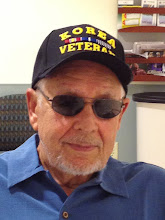 By Florida Bill
By Florida Bill
Want to know who is ahead, who is behind, who is surging and who made an
intentional or unwitting gaffe in the political maneuvering to become their
party's standard bearer in the presidential election of 2016? Want
to know how Americans feel at any given moment about anyone in a long list of
political candidates? The crystal ball
is in the hands of those swamis known as pollsters, and they are delivering big
time.
Polling blather is nonstop even though the primaries and the election of
2016 are a long way off.
How accurate are these telephone shotgun
polls? In principle, we are told that a public opinion poll taps
into the heads of a "scientifically
constituted" group of maybe 400 to
1,000 persons, and that this carefully selected sample must look and act like
the larger population they come from in every important way. The sample must have almost exactly the same
proportions of men and women, blacks, whites and Hispanics; Democrats and
Republicans and old and young people as in the entire population. This small
sampling is supposedly accurate to within plus or minus three percentage
points. Wow, quite a feat.
As if that isn't hard enough, changes in technology are complicating the leg work for pollsters:
landlines are giving way to mobile phones; and users on-the-go are less patient
with long drawn out questionnaires. Without a doubt, the money saving robo-calls
with their computerized voices annoy many people and prompt them to hang up.
So scaring up answers from the scientific aggregate, is, I sense, no
simple task. It's even more remarkable, considering that the United States
has more than 300 million persons living in some 19,000 cities, towns and villages; and these communities are situated inside
3,141 counties within our 50 states. And
this entire profile is spread out over about 3 million square miles of land and
water. Ain't computers grand?
But any geek will tell you there is an underlying principle in all this
data crunching: garbage in, garbage out.
Pollsters draft the questions and wording makes a lot of difference in
the responses. Questions in polls are seldom yes or no, but rather open-ended
types with scripted choices and often they involve favorability, ranging from very high to terrible. If you want the numbers to rise, fall or
surge for a favored one, you can provide
a carefully worded pitch, and if you happen to match it to the right geographical area: presto, new
findings and new leaders. But of course,
we all know that would never happen.
TV viewers
and political groupies have an uncanny addiction to these polls which reveal the comparative popularity and
percentages of candidates vying to become their party's nominee. Updates from polls and surveys arrive with
great regularity, "like every 15
minutes," said one candidate.
Is Donald Trump leading or did he slip a bit? What about his comment about "anchor babies"? Very "offensive," but did it hurt? Dr. Carson is closing the gap, but he is down
on Muslims--but wait, has that actually helped him gain supporters and millions in additional
donations. Is Huckabee too Christian, or
Cruz too conservative. Is Rubio too
inexperienced, is Bush too "low
energy?"
Is Hillary
Clinton's lead among Democrats shrinking, amid her email problems and Socialist
opponent Bernie Sanders'call for more "free stuff" for Americans?
In fact, there are so many different polls
conducted by so many different pollsters that they bump heads and create what
Bill O'Reilly might call a real "spin zone." It's all endlessly fascinating, but does anybody believe it, other than the pollsters themselves and the media that is
so eager to disseminate the latest findings?
I consider this endless babbling over who may or may not become their
party's standard bearer with lots of, shall we say, skepticism. For sure someone is ahead, and maybe the polls
are right. But maybe they aren't. In a
past presidential polling period, I remember that polls put a screaming Howard
Dean ahead of other Democrats and Mike Huckabee and Michelle Bachman were
riding the Republican high ground. Needless to say, none of them became presidential
nominees.
At this
early stage in the election process, with primary elections still more than
four months away, voters may be skeptical, but aren't decisions about donations and campaign tactics, and even the
viability of a candidate, being based on these never ending polls. Is this
dangerous to the Democratic process? Maybe--but then, what other criteria to do
we have? The opinions of political experts and pundits? Maybe the polls aren't
so bad after all.
However, my own
experience with polls has not been that impressive. I was queried recently by a
telephone voice on a polling mission, but the caller spoke such poor English
that declaring whether I was more likely, most likely, less likely or least likely to do
this, that or the other thing was too tedious and I just hung up.
There is
good and bad in this polling frenzy.
But, hey, this is the time when political madness sweeps the nation in
anticipation of a Presidential election.
It does not usually get going this early, but this year with so many
candidates, hype and buzz, it seems to be in full swing. The polls keep it all moving at a torrid pace, and with these wizards, we know it all--until
the next poll comes out.
I believe polls can be very informational....
ReplyDelete+ / - 10% !